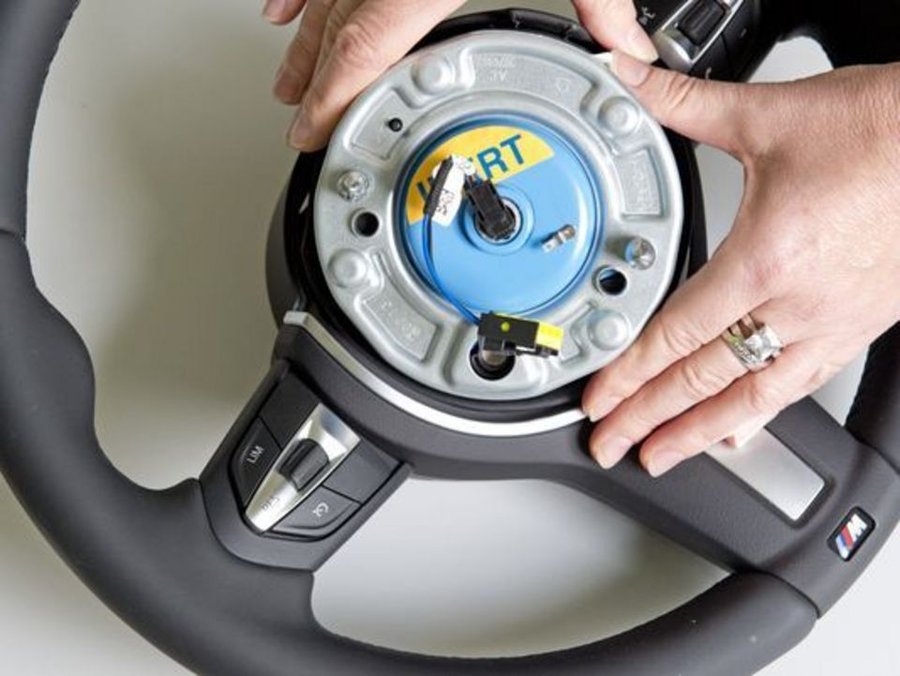Toyota May Buy Replacement Airbag Inflators from Three Takata Rivals

The automaker is considering using inflators from Autoliv Inc., Daicel Corp. and Nippon Kayaku Co. for replacement air bags, spokeswoman Kayo Doi said by phone. Toyota may use the additional components to supplement supply of inflators from Takata and speed up repairs, she said.
Automakers are reducing their reliance on Takata as the industry struggles to find the root cause behind a record vehicle-safety recall. Toyota told U.S. regulators last month that it expected suppliers other than Takata to provide about 23 percent of the replacement inflators needed to fix about 2.9 million vehicles the company is recalling in the country.
Toyota also told regulators it’s supporting the increased cost of replacement parts production, including to help add capacity.
The Japanese carmaker last month asked Nippon Kayaku to increase production in order to supply 13 million inflators to the company from July next year through 2020, Reuters reported, citing people familiar with the matter.
The move is the most proactive yet by manufacturers affected by the world's biggest automotive recall, which has prompted more than 10 automakers to recall tens of millions of vehicles since 2008 to replace Takata airbags.
Takata airbag inflators have been linked to eight deaths and more than 100 injuries after exploding with excessive force, spraying shrapnel inside vehicles. Automakers are bearing the cost of most recalls while the root cause is investigated.
Recall pressure
Two key U.S. senators on Thursday urged Takata to recall immediately all cars equipped with the company's airbags, a demand that could affect more than 50 million cars on U.S. roads.
Toyota based the amount of Nippon Kayaku purchases on the number of vehicles with Takata-made inflators it thinks could become dangerous as the cars age over the next few years, the people said.
If Toyota switches to Nippon Kayaku inflators, it "will replace the high-risk ones, in other words the older ones, first and then proceed sequentially" to newer inflators, one individual said.
Takata has said long-term exposure to heat and high humidity can make its airbags deploy too forcefully. All the vehicles recalled so far are at least five years old.
Toyota asked Nippon Kayaku, a century-old company that also manufactures chemicals and pharmaceuticals, to expand its production facilities to meet the demand, said the sources, who asked not to be named because the discussions are confidential.
Tokyo-based Nippon Kayaku could not immediately be reached for comment.
Precautionary switch
The sources declined to say how much the purchases would cost Toyota, but average inflator prices suggest a total of around $100-$150 million.
Toyota considers a switch to Nippon Kayaku inflators as a precaution in case further recalls are required, said the person with direct knowledge of the deal.
Toyota, which has to date recalled more than 12 million vehicles with Takata-made airbag inflators, is a pioneer of lean manufacturing and keeps minimal inventory to reduce costs and improve efficiency.
After being criticized for acting too slowly on a separate major recall crisis of its own five years ago, Toyota, which vies with Volkswagen as the world's biggest carmaker, wants to be able to replace at-risk inflators promptly if it needs to, the sources said.
The move does not mean Toyota will stop buying Takata inflators, one of the individuals said. Toyota "won't do anything to crush Takata," he added.
"Toyota wouldn't want its business with Takata to disappear ... This is a strategy where it's trying to maintain business and reduce risk," said Takaki Nakanishi, CEO of Nakanishi Research Institute, which specializes in the automotive industry.
"As for Takata, even if its inflator business shrinks, it can certainly still survive as an airbag maker if it buys inflators from other companies," he added.
Takata uses inflators made by supplier Daicel Corp. as well as its own, and this has increased with the demand for replacements since the recall.
The person with direct knowledge of the deal would not say whether Toyota is helping Nippon Kayaku pay for its expansion, or whether Toyota would keep buying its inflators after 2020.
Nippon Kayaku employs almost 5,200 staff on a consolidated basis. Total group sales in the year to end-March rose 1.1% to nearly 162 billion yen ($1.3 billion).
Previously Honda Motor Co. helped Daicel finance a production increase to meet demand for replacement airbags, said a person familiar with that deal, and Sweden's Autoliv Inc. has also boosted production of replacement inflators at automakers' requests.
Nouvelles connexes


